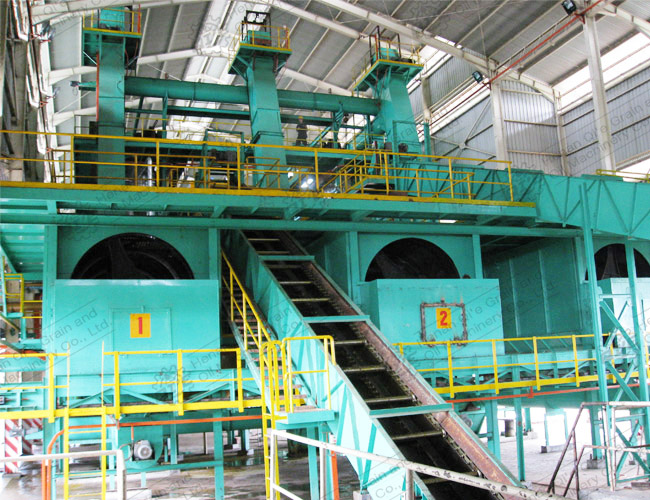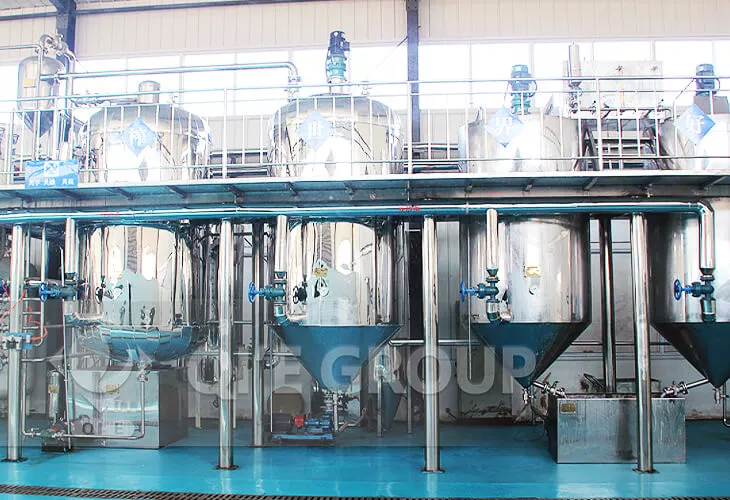
As global industries increasingly prioritize sustainability and efficiency, the adoption of energy-saving and environmentally friendly technologies has become a key factor in competitive advantage. In the palm oil processing industry, the implementation of advanced refining equipment not only meets environmental standards but also significantly reduces operational costs. This article explores how an energy-efficient palm crude oil refining system helps businesses achieve cost savings while maintaining high-quality output.

The modern energy-saving palm crude oil refining system integrates a complete extraction and refining process, ensuring maximum yield and quality. The system begins with the cold pressing or solvent extraction of raw palm fruit, followed by a multi-stage refining process that includes degumming, neutralization, bleaching, and deodorization. This ensures that the final product is free from impurities and meets international quality standards.
According to data from our internal testing, the system can process up to 50 tons of crude palm oil per day, with a refining efficiency rate of over 98%. This level of performance is achieved through optimized thermal management and precise control of chemical reactions during each stage of the process.

A key feature of this equipment is its fully automated PLC (Programmable Logic Controller) system. This technology allows operators to monitor and control the entire refining process from a single interface, reducing manual intervention and minimizing human error. The system automatically adjusts temperature, pressure, and flow rates based on real-time data, ensuring consistent product quality and optimal energy use.
Compared to traditional systems, the PLC control system has reduced labor costs by approximately 40% in many facilities. It also improves production safety and reliability, making it a valuable investment for any palm oil processing plant.
One of the most significant advantages of this equipment is its energy-saving design. According to performance data collected from multiple clients, the system consumes about 30% less electricity than conventional refining units. Additionally, the heat recovery system captures excess thermal energy, which is reused in the refining process, further lowering energy consumption.
For example, a medium-sized palm oil refinery in Southeast Asia reported a monthly energy cost reduction of $12,000 after switching to this system. Over a year, this translates to a saving of $144,000, which can be reinvested into other areas of the business.

One of our long-term clients, a palm oil processor in Indonesia, implemented the energy-saving refining system in 2022. Prior to the upgrade, their production costs were significantly higher due to inefficient energy use and frequent maintenance issues. After installation, the company saw a 25% improvement in overall production efficiency and a 35% decrease in energy expenses.
Moreover, the refined oil produced met all international export standards, allowing the company to expand its market reach. The return on investment was achieved within 14 months, proving the long-term value of the technology.
Investing in energy-saving and environmentally friendly palm crude oil refining equipment is no longer just a choice—it's a necessity for companies aiming to stay competitive in the global market. With proven benefits in terms of cost reduction, efficiency, and sustainability, such systems offer a clear path to long-term success.
If you're looking to upgrade your palm oil processing operations, we invite you to explore our range of advanced refining solutions. Our team is here to provide tailored recommendations and support to help you make the right decision for your business.
Explore Our Energy-Saving Solutions Today
